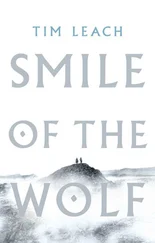‘You are well enough to ride?’ Lucius said. ‘We can wait—’
‘I am ready. What need is there to wait?’ Kai was smiling then – a half-mad smile, perhaps, but one born of courage, nonetheless. And whatever was to come after, he was grateful to have tasted that courage one last time. ‘And so,’ he said, ‘let us do what we have done before, and can do again.’ The smile fell away, then. ‘But first, I must say goodbye.’
*
Arite had not thought they would live long, when first they were brought to the cages.
It was not because of the paltry food, for they were a people used to hard living. Nor the open air, for the winter was gone, the first warmth of spring already upon them. But the confinement itself – she thought that must be what would kill them.
Yet the Sarmatians had built a world of their own with what little they had been given. The food gifted to those who needed it most, rotten meat and mould-speckled bread tossed from cage to cage. Songs, too, from those who had the strength to sing them, the old stories of their people told over and over and over again. There was even love in that place – chaste courtships between the cages, unspoken for the most part, as women stared silently and men stretched their hands out into the empty air. And all conspired to sleep as well as they could, huddled together for warmth and holding their bindings still and silent. For it was only in dreams that they could roam free once again.
A world they had, and rituals, too. For the chanting that had greeted Arite and Tomyris had been no thing of chance or the moment. Few were the prisoners brought to them now, but each one was greeted in the same way – the rattle of chains shaken into percussion, the rapping of bowls upon the ground. Voices raised against the Emperor who had put them there, every curse that they knew of, the forbidden incantations of magic and witchcraft. All of them sat in circles, bound in iron, praying for the death of a god.
And so when once more she heard the roaring and the calling and the howls of grief, she paid it little mind. It was only when beside her, through the bindings at her wrists, she felt Bahadur tremble, then go still, that she knew who it must be.
But Kai did not come as a prisoner. No rope or iron bound around his hands, and dressed in borrowed Roman clothing – a man ready for a journey, it seemed. She understood then what it was that Kai had come to do. It must have been quite a price in silver that Lucius had paid, to give Kai this farewell.
She tried not to listen as he spoke to his daughter, and only in part to give them privacy. For she had brought five children of her own into the world, buried each of them in turn. Fever, stillbirth, the sword. Her sons and daughters all taken from her, and never again would she know that urgent, complete kind of love. But even as far away in the cage as she could go, she could still hear the little choking sobs, the whispers that passed between father and daughter.
Then the silence, the feet shifting outside the cage. She looked to Bahadur, hoping against hope that he might offer a farewell of his own to Kai. How many times had they sat together beside the fire, trading song and story. How often they had exchanged hot words, only to clasp hands and forgive. And, just for a moment, she thought she saw Bahadur begin to smile at the sight of his friend.
But it was more a baring of his teeth, the way a man may grin at mockery that he cannot answer with a sword. Then Bahadur turned away, and lay upon the floor of his cage.
Kai did not meet her gaze then – his body half turned from her, like a man guarding a wound. She found herself moving in the same way, a mirror to his shame, until there was anger, quick and sharp as battle fury. She leaned forward, her head against the wooden bars. He hesitated for but a moment, before he came close, close enough for them to whisper to each other.
‘I do love him,’ she said.
‘As do I,’ he answered.
‘There is a madness in the blood between us,’ she said. ‘It is something that cannot be undone. But I will not be ashamed. I wish I had not given him this hurt. But I will not be shamed for it.’
He said nothing. She had spoken so softly that she wondered if he had even heard the words.
Then: ‘I broke a promise,’ he said.
‘But did not lie.’
‘No.’ A little brightness in the eyes, then. ‘That is true.’
‘You go back across the water?’
‘Yes. With Lucius. We shall win the peace.’ He traced the borders of the bars with his fingers. ‘And freedom for you all from this cage.’
‘Live, if you can.’
‘Keep them safe, if you can.’
‘I wish…’ she said, but let it trail away.
It was time then, for the parting. A longing to touch once more, a binding of fingers, a joining of lips. Any touch a betrayal, yet to part without it seemed treachery of a different kind.
He must have felt it, too. For he reached down, and took something from a pouch on his belt – one of the guards nearby stepping forward and raising a hand, until the Roman saw it was merely a strip of leather, nothing more. A worthless thing that a rider may use to repair a saddle, or bind about a sword handle. Kai laid it on the floor of the cage by her feet, as though it were something sacred.
She took a twist of cloth from the folds of her clothing, a rag she had kept in the way that a prisoner saves everything they can, and placed it beside his offering. After a moment, on some unspoken signal, each took the other’s token.
One last brief touch, the back of her fingers passing against his. Then he was gone – away towards the horses, the river, the journey, and death.
Five days in the saddle, over the Danu and back across the plain. Lucius, Kai, and ten Roman cavalry sent to escort them. Their spears dressed with a branch and bound with twists of long grass, the marks of truce. A dozen men hunting an army.
Kai led them – in part from his knowledge of the mustering places and natural pathways across the plains, but also by a feeling, the unseen bond that pulled him back towards his people. The way that birds may make great sojourns across country and continent, through storms that may blow them countless miles off course, and yet still they find their way.
At night, about the campfires, the Romans whispered amongst themselves. Cursing him, no doubt, for they had little faith in the nomad’s instinct. After the fourth day, with no sign of the army on the plains, even Lucius was beginning to doubt him. That night, as they made camp, he took Kai aside, quietly said: ‘Are you certain of the way?’
‘Not certain. But we shall find them soon enough.’
The Roman glanced back towards his men. ‘We should have come across their scouts by now.’
‘They will have no outriders. Just a single great warband, riding as one.’
‘Why? It is madness for cavalry to move without scouts.’
‘Because,’ said Kai, ‘they come to die, not to win.’
And on the next day, he was proved right. At a distance, past a copse of trees, they saw armour glittering in the light that danced across the scales of horn and iron the way the sun plays upon the sea. When they passed through the trees, they saw a second forest laid out before them – the tall spears tipped up towards the sky, the banners streaming behind. Upon the air was the war music of horn and drum, and before them the horses and their riders spread across the plain. A whole people hurrying towards their deaths, and for Kai there was pride at first, to look upon them once more, to see a courage and defiance that made him ashamed. Perhaps it was the way that his people were meant to die, standing together against hopeless odds.
Читать дальше
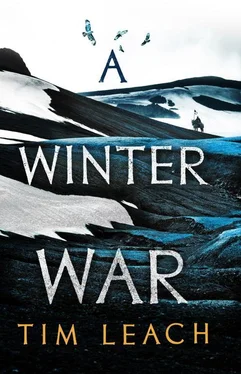
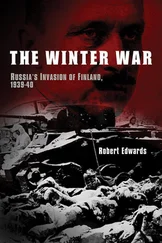

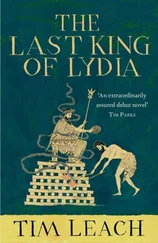

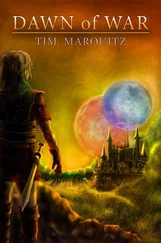

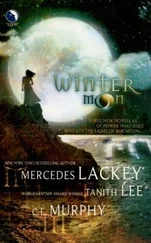
![Стюарт Слейд - Воины зимы [Winter Warriors ru]](/books/401383/styuart-slejd-voiny-zimy-winter-warriors-ru-thumb.webp)
